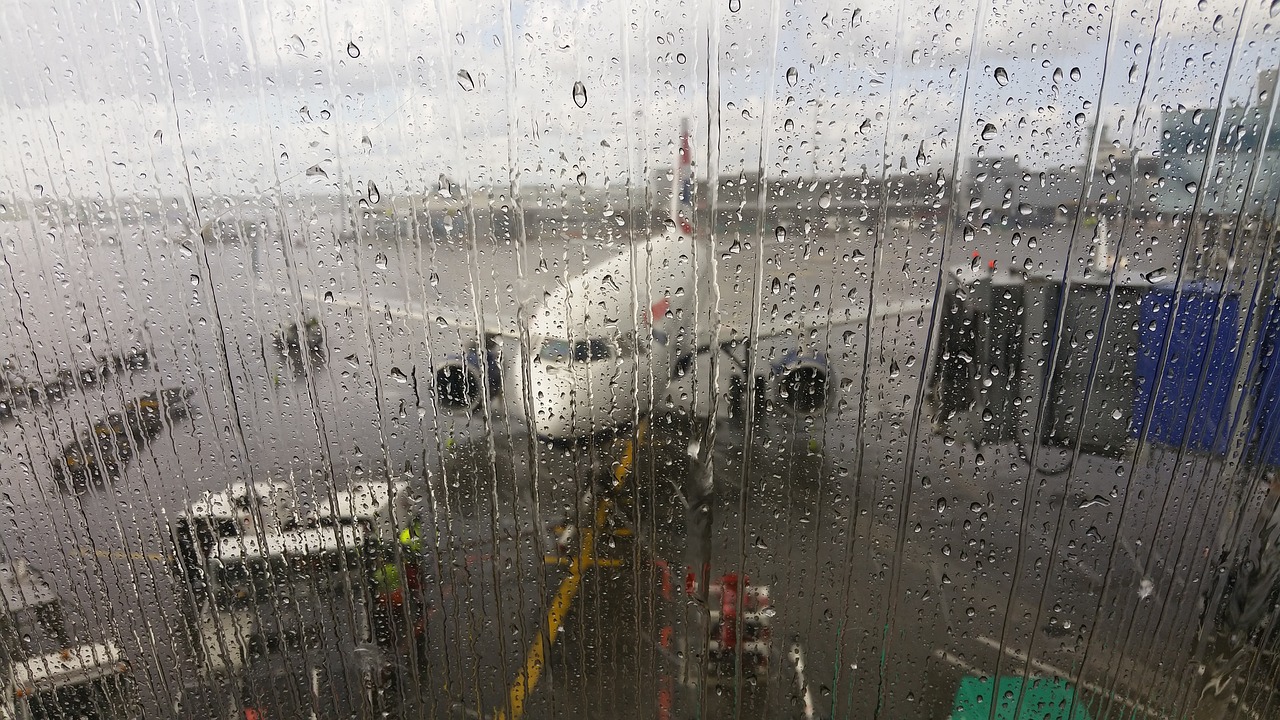„`html

Introduction to Djibouti eVisa
What is Djibouti eVisa?
The Djibouti eVisa is an electronic visa introduced to simplify the process of entering Djibouti for foreign travelers. This digital document certifies that the holder is authorized to stay in Djibouti for a specified period. It replaces the traditional visa on arrival system and can be obtained online. The eVisa is issued primarily for tourism or business purposes, making it easier for travelers to plan their trips without the hassle of visiting embassies or consulates.
Why is Djibouti eVisa required?
To enter Djibouti, most foreign citizens need a visa, and the eVisa simplifies this process. The Djibouti eVisa is required for foreign travelers to ensure that they meet the entry requirements and to streamline border control procedures. Additionally, the eVisa ensures that visitors are pre-screened, which enhances security and facilitates a smoother travel experience.
History and Introduction of the eVisa System
The Djibouti eVisa system was introduced on February 18, 2018, marking a significant shift from traditional visa issuance methods. This change was aimed at modernizing the visa application process and making it more accessible to international travelers. By moving to a digital platform, Djibouti has enhanced its ability to manage tourist influx and improve overall efficiency in visa issuance.

Eligibility for Djibouti eVisa
Who Needs a Djibouti eVisa?
Generally, all foreign citizens planning to visit Djibouti need to obtain an eVisa. However, there are exceptions for certain nationalities. The eVisa is necessary for those traveling for tourism, business, or transit purposes. It’s important to check the specific requirements based on your nationality before applying to ensure compliance with Djibouti’s immigration laws.
Djibouti Visa-Exempt Countries
Djibouti has a visa-exempt list, which includes nationals from Singapore and holders of Chinese public affairs passports. These travelers are not required to obtain an eVisa for entry into Djibouti. This exemption facilitates easier travel for these specific groups, aligning with bilateral agreements and international relations.
Djibouti eVisa Eligible Countries
Nationals from most countries are eligible to apply for a Djibouti eVisa online. Key eligible countries include the United States, Ethiopia, and many others. Before applying, it’s crucial to verify if your country is on the eligible list to avoid any application issues.

Types of Djibouti eVisa
Single Entry 14 Days eVisa
The Single Entry 14 Days eVisa allows travelers to stay in Djibouti for up to 14 days. This type of visa is perfect for short-term visits, whether for tourism or business. The fee for this eVisa is $12, making it an affordable option for a quick trip. This short-stay visa is ideal for those planning brief stays to explore Djibouti or attend business meetings.
Single Entry 90 Days eVisa
For those needing a longer stay, the Single Entry 90 Days eVisa permits a stay of up to 90 days in Djibouti. This is suitable for extended business engagements or longer tourist visits. The fee for this visa is $23, offering a cost-effective solution for prolonged stays. It’s an excellent choice for those who want to immerse themselves in Djibouti’s culture and landscapes over a more extended period.
Djibouti Transit Visa
Travelers passing through Djibouti en route to another destination can apply for a Transit Visa. This visa allows a stay of up to 14 days and costs $71. The transit visa is ideal for travelers with layovers or short-term transit needs. This visa ensures that even brief visitors can legally enter Djibouti while waiting for their connecting flights.

Application Process for Djibouti eVisa
How to Apply for Djibouti eVisa Online
Applying for a Djibouti eVisa is a straightforward process that can be completed online. Applicants need to fill out an online application, provide the necessary documents, and pay the visa fee electronically. Once the application is submitted, it is reviewed by Djiboutian authorities, and the approved eVisa is sent via email.
Step-by-Step Guide to Completing the Application Form
To complete the Djibouti eVisa application form, follow these steps:
- Visit the official eVisa application website.
- Fill in personal details such as name, date of birth, and passport information.
- Select the type of eVisa you need (14 days, 90 days, or transit).
- Upload required documents, including a recent photograph and a scanned copy of your passport.
- Review your application for accuracy.
- Pay the visa fee using a credit or debit card.
- Submit the application and wait for the approval email.
Completing the form accurately and ensuring all information is correct is crucial to avoid delays or rejections.
Required Documents for Djibouti eVisa Application
When applying for a Djibouti eVisa, you need to prepare several documents:
- A valid passport with a signature.
- A recent passport-sized photograph.
- Detailed itinerary or hotel reservations.
- Copy of the host’s ID or passport, if applicable.
- A personal invitation letter with contact details, trip duration, and accommodation confirmation, if applicable.
- Hotel reservation confirmation with the applicant’s name.
Having these documents ready will expedite the application process and increase the chances of approval.

Djibouti eVisa Fees
Government Visa Fees
The government fees for the Djibouti eVisa are straightforward. For a 14-day short stay eVisa, the fee is $12. For a 90-day long stay eVisa, the fee is $23. These fees are paid online during the application process and are non-refundable.
Netafri.com Service Fee
In addition to the government fees, applicants may also opt for services provided by Netafri.com, which charges a service fee of €50.00 Euro. This fee covers additional services such as application assistance and expedited processing.
Breakdown of Total Costs
Understanding the total cost of obtaining a Djibouti eVisa is essential for budgeting your trip. Here is a breakdown:
- 14 Days eVisa: $12 (Government Fee) + €50.00 Euro (Netafri.com Service Fee)
- 90 Days eVisa: $23 (Government Fee) + €50.00 Euro (Netafri.com Service Fee)
- Transit Visa: $71 (Government Fee)
Planning for these costs will ensure a smooth application process without unexpected expenses.

Validity and Usage of Djibouti eVisa
Validity Period of Djibouti eVisa
The Djibouti eVisa validity depends on the type of visa you select. The Single Entry 14 Days eVisa is valid for 14 days, while the Single Entry 90 Days eVisa allows for a stay of up to 90 days. These periods begin from the date of entry into Djibouti.
Conditions and Limitations of Use
There are specific conditions and limitations associated with the Djibouti eVisa. The eVisa is only valid for tourism, business, or transit purposes. It cannot be used for employment or long-term residency. Travelers must enter and exit Djibouti through designated points of entry, such as Ambouli International Airport.

Djibouti eVisa Requirements
Passport Requirements
Applicants must have a valid passport to apply for a Djibouti eVisa. The passport should be valid for at least six months from the date of entry into Djibouti and should include a signature.
Photograph Specifications
A recent passport-sized photograph is required for the application. The photo should have been taken within the last six months, against a plain background, and clearly show the applicant’s face. Ensuring the photo meets these specifications is vital for the application’s approval.
Additional Documentation Needed
Beyond the passport and photograph, other documents may be necessary:
- Detailed travel itinerary or hotel reservations.
- Copy of the host’s ID or passport, if applicable.
- Personal invitation letter with trip details, if applicable.
- Hotel reservation confirmation with the applicant’s name.
Gathering these documents in advance will facilitate a smoother application process.

After Receiving the Djibouti eVisa
Receiving the Approved eVisa via Email
Once your Djibouti eVisa application is approved, you will receive the eVisa via email. Ensure to provide a valid email address during the application process to receive your visa promptly. Print out the eVisa and keep a digital copy on your device for convenience.
Presenting Documents at Ambouli International Airport
Upon arrival at Ambouli International Airport, you must present your passport, printed eVisa, and any other relevant documents. These documents are essential for verifying your entry into Djibouti. The immigration officers will check your eVisa and other details before granting entry.

Special Considerations
Visa for Purposes Other than Tourism, Business, or Transit
If your purpose for visiting Djibouti is other than tourism, business, or transit, you must apply for a visa through Djibouti’s embassies or consulates. This process may require additional documentation and a different set of criteria, depending on the nature of your visit.
Vaccination Requirements for Travelers to Djibouti
Travelers to Djibouti must adhere to vaccination requirements set by health authorities. The CDC recommends vaccinations for diseases such as yellow fever, typhoid, and hepatitis A. Having updated vaccinations is crucial for your health and safety during your trip. Ensure to carry your vaccination certificate as it may be required upon entry.
| Information | Description |
|---|---|
| Djibouti eVisa Types | Single entry 14 days e-Visa, Single Entry 90 days e-Visa |
| Djibouti e-Visa fees | $12 (14 days Short stay evisa), $23 (90 days Long Stay evisa) |
| Netafri.com service Fee | €50.00 Euro |
| Djibouti tourist e-visa | single entry, 14 or 90 days, $ 81 (14 days) and $ 82 (90 days) |
| Djibouti business e-visa | single entry, 14 or 90 days, $ 81 (14 days) and $ 82 (90 days) |
| Djibouti transit visa | single entry, 14 days, $ 71 |
| Passport | valid and with a signature |
| Photograph | taken in the last six months |
| Itinerary | detailed or copy of hotel reservations |
| Host’s ID | copy of the ID or passport |
| Personal invitation | letter with contact information, trip duration, accommodation confirmation, and trip purpose |
| Hotel reservation | copy with applicant’s name |
| Introduction of the eVisa system | February 18, 2018 |
„`
Originally posted 2024-08-06 16:59:56.
